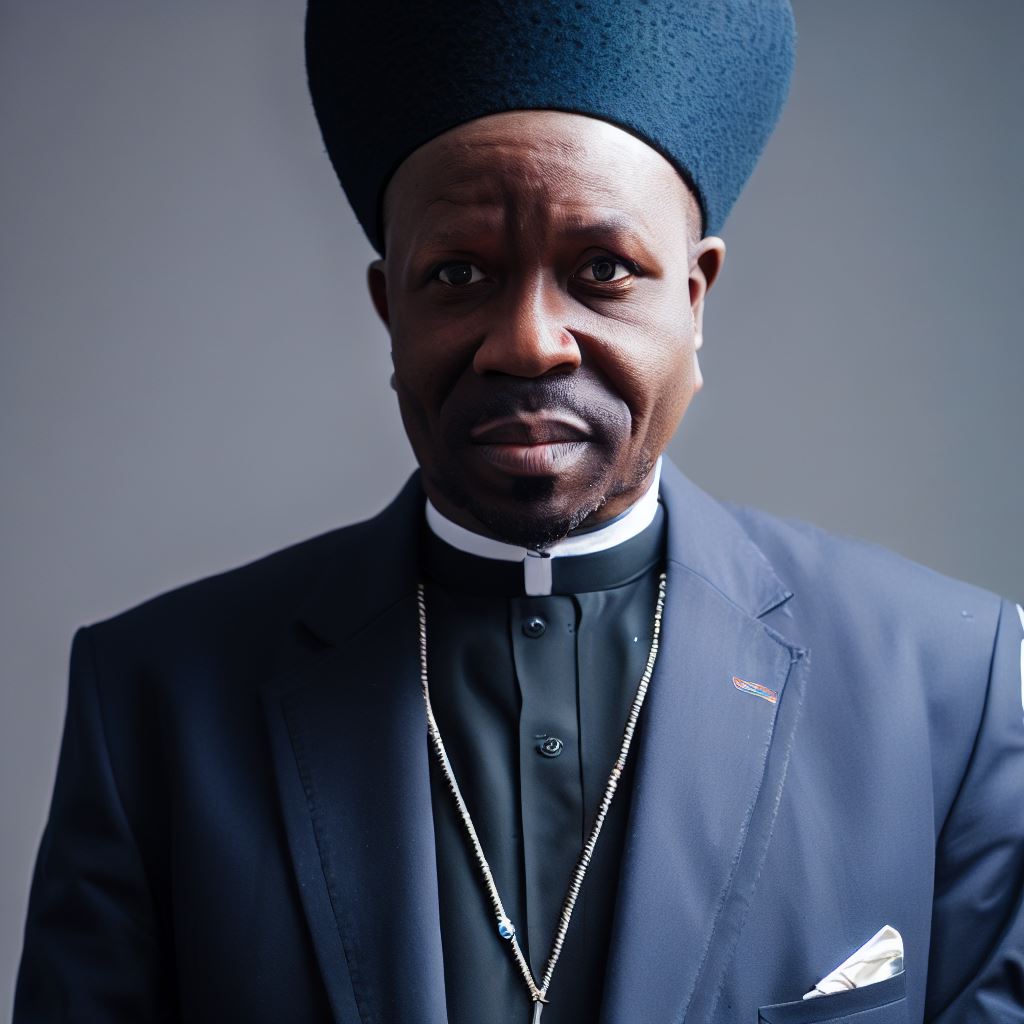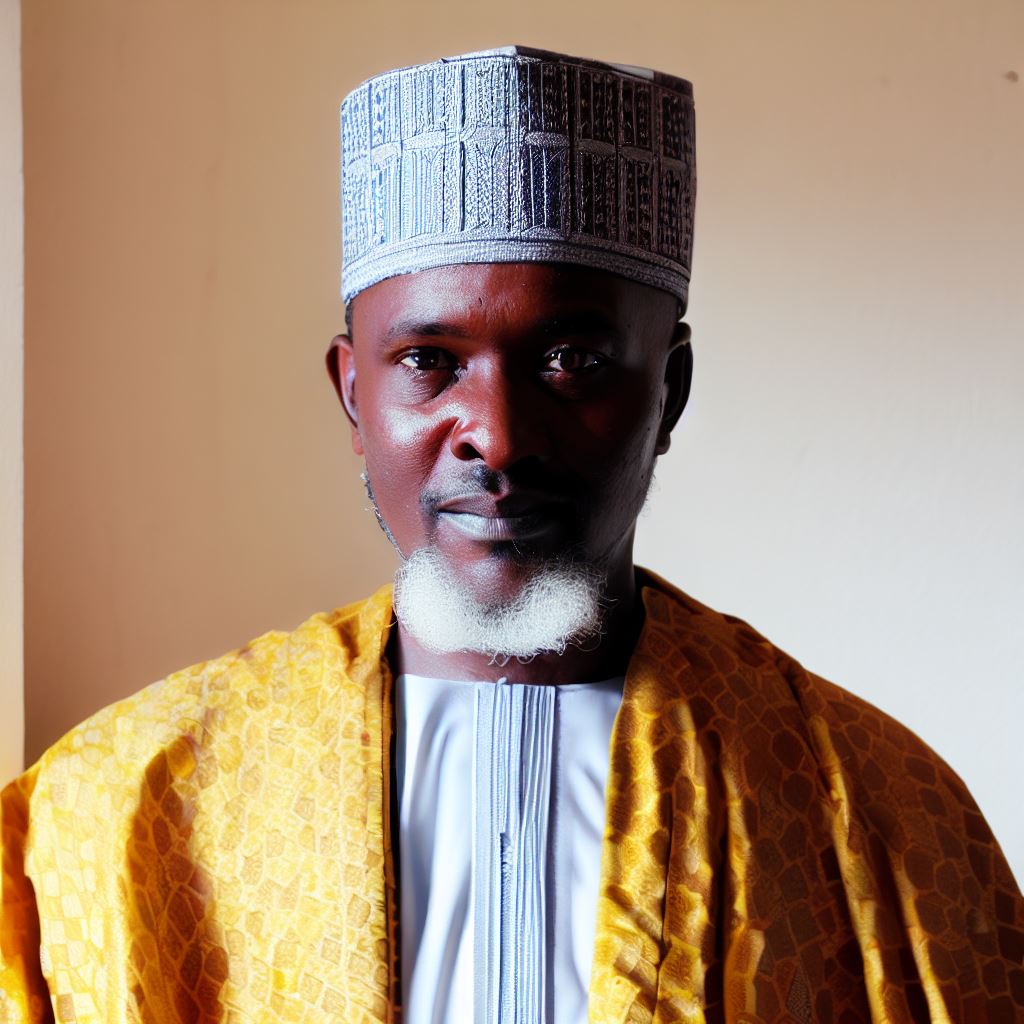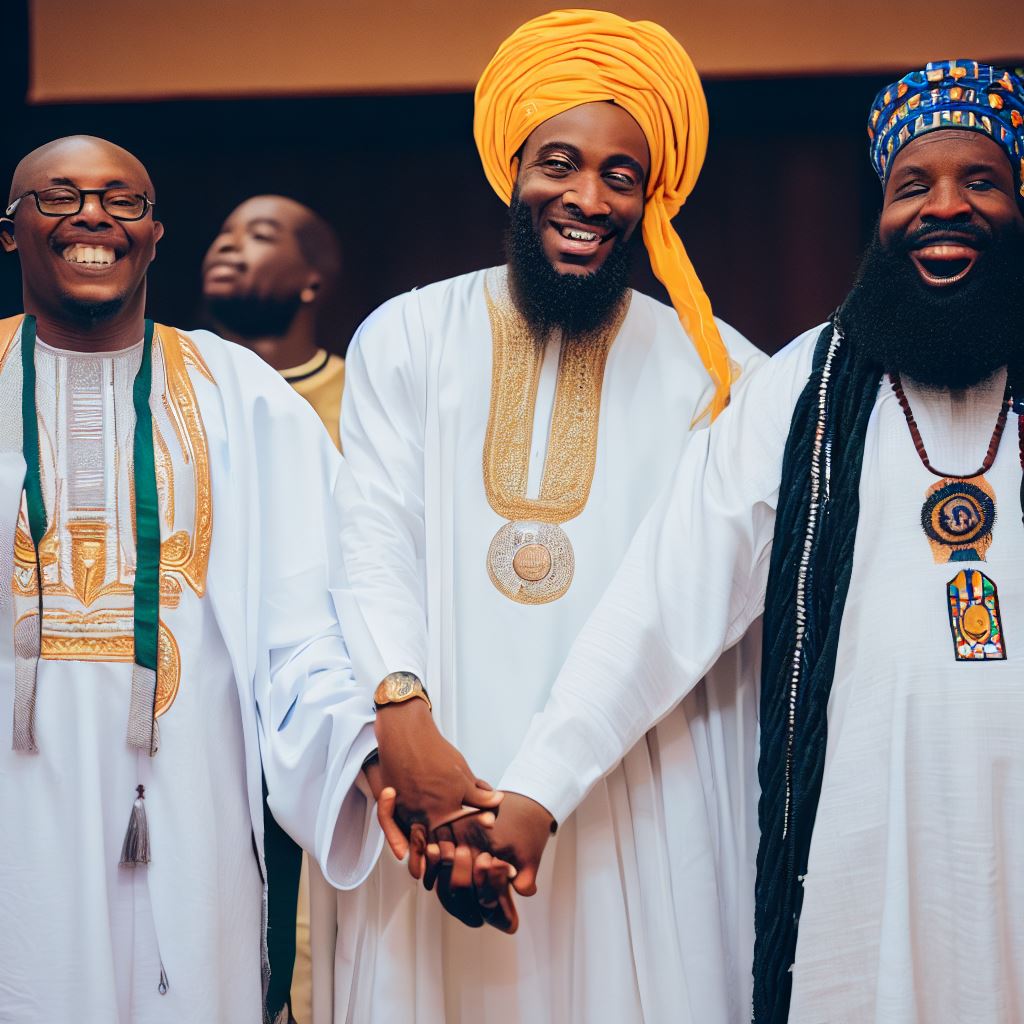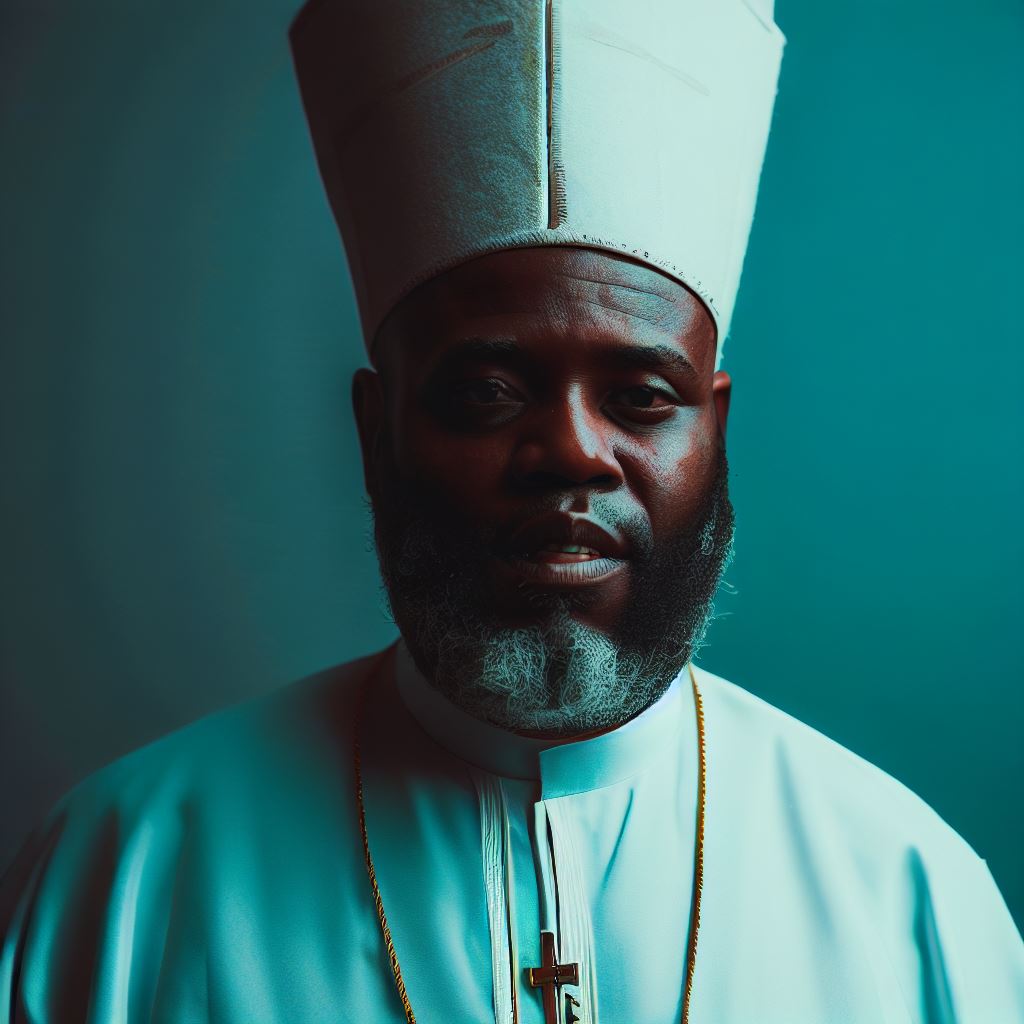Introduction
Tradition and Modernity in Nigeria Clergy: Nigeria, a country known for its rich cultural heritage and diverse religious practices, has a clergy that holds immense influence over its people.
These clergy members, representing various faiths, play a vital role in guiding and shaping the values and beliefs of Nigerians.
Tradition has always been a significant aspect of the Nigerian clergy. It encompasses cultural practices, rituals, and traditional beliefs that have been passed down through generations.
These traditions serve as the foundation of their religious teachings and guide their interactions with the society they serve.
However, with the rapid advancements in technology and globalization, the clergy faces the challenge of striking a balance between tradition and modernity.
The modern world demands that they adapt their approaches and connect with the younger generation, who are more inclined towards modern practices and beliefs.
To effectively serve and connect with society, it is essential for Nigeria’s clergy to find this balance. By embracing modernity, they can expand their outreach and engage with a wider audience.
This may involve utilizing social media platforms to spread their message or incorporating contemporary elements into their religious ceremonies.
On the other hand, holding onto tradition preserves the cultural identity of the clergy and enables them to connect with the older generation, who hold steadfast to traditional practices.
By maintaining certain customs and rituals, they can also provide a sense of familiarity and stability to their followers.
Striking a balance between tradition and modernity is essential for Nigeria’s clergy to effectively serve and connect with society.
Adapting to the evolving world while preserving their cultural heritage will enable them to stay relevant and fulfill their role as moral guides in the ever-changing Nigerian society.
Understanding Tradition in Nigeria’s Clergy
Nigeria’s deep-rooted traditions and cultural norms
- Nigeria is a country known for its rich and diverse cultural heritage.
- The traditions and cultural norms in Nigeria have been passed down through generations.
- These traditions hold significant meaning and play a vital role in the lives of Nigerians.
- Traditional beliefs, customs, and practices are deeply ingrained in the Nigerian society.
Role of tradition in shaping the clergy’s practices and beliefs
- Tradition plays a fundamental role in shaping the practices and beliefs of the Nigerian clergy.
- The clergy often refer to traditional beliefs to guide their actions and decision-making.
- Traditional practices provide a sense of identity and continuity to the clergy.
- The clergy’s adherence to traditions helps them connect with their congregations and gain trust.
Examples of traditional practices within the Nigerian clergy
- Traditional dress: The Nigerian clergy often wears traditional attire during religious ceremonies.
- Rituals: Various religious rituals and ceremonies are performed following traditional customs.
- Traditional healing practices: Some clergy members incorporate traditional healing methods into their ministry.
- Ancestral worship: In some regions of Nigeria, the clergy actively engages in ancestral worship as part of their religious practices.
- Traditional music and dance: The Nigerian clergy incorporates traditional music and dance into their worship services.
- Leadership hierarchy: The clergy follows a hierarchical structure influenced by traditional norms.
- Ritual sacrifices: In certain ceremonies, the clergy may partake in or oversee the sacrifice of animals or other offerings.
- Traditional festivals: The clergy actively participates in traditional festivals, honoring their cultural heritage.
- Anointing with oil: The use of traditional oils and anointing practices are prevalent within the Nigerian clergy.
- Traditional marriage ceremonies: The clergy often officiates traditional marriage ceremonies, incorporating ancient customs.
Tradition plays a substantial role in Nigeria’s clergy. The deep-rooted traditions and cultural norms of Nigeria have a significant impact on shaping the practices and beliefs of the clergy.
These traditions provide a sense of identity and guide the clergy in their ministry.
Examples of traditional practices within the Nigerian clergy range from the use of traditional dress and rituals to the incorporation of traditional healing methods and ancestral worship.
Understanding and appreciating the role of tradition in Nigeria’s clergy is essential for a comprehensive understanding of the country’s religious landscape.
Read: Nigerian Clergy’s Role in Education and Community Care
Embracing Modernity in Nigeria’s Clergy
Introduction to modernity and its influence on the clergy
Modernity refers to the concept of embracing progressive ideas and practices in society.In Nigeria, the clergy is starting to recognize the importance of incorporating modernity
They are realizing that it can help them connect better with the younger generation.
Modernity allows the clergy to adapt their teachings to the changing social and cultural dynamics.
Challenges faced by the clergy in adopting modern approaches
- Traditional beliefs and practices deeply rooted in Nigeria’s religious culture pose challenges.
- Resistance from older clergy members who are resistant to change can hinder progress.
- A lack of technological infrastructure and resources can limit the adoption of modern practices.
- Some clergy members fear that embracing modernity may dilute the core teachings of their faith.
Benefits of incorporating modern practices in the clergy
- Embracing modernity can help bridge the generation gap within religious communities.
- Using modern communication tools can enhance outreach and engagement with congregants.Modern approaches can make religious services more inclusive and accessible to a wider audience.
- Adopting modern practices can promote critical thinking and intellectual development amongst clergy members.
- It can also strengthen the relevance and credibility of the clergy in modern society.
- Through embracing modernity, the clergy can address current social issues more effectively.
Read: Training for Clergy in Nigeria: A Comprehensive Review
Striking a Balance between Tradition and Modernity
Importance of preserving cultural heritage and traditional values
- Nigerian clergy acknowledges the significance of preserving cultural heritage and traditional values.
- They understand the value of ancient customs and rituals in shaping their identity.
- Traditional practices help establish a sense of belonging and unity within the community.
- Preserving cultural heritage ensures the transmission of ancestral wisdom and teachings to future generations.
- By holding onto traditions, clergy members are able to establish a connection with their ancestors and honor their legacy.
Recognizing the necessity for adapting to the changing world
- Nigerian clergy also acknowledges the need to adapt to the ever-changing world.
- They understand that society evolves, and it is important to keep up with the modern era.
- Embracing modernity allows clergy members to remain relevant and connect with younger generations.
- Adjusting to the changing world ensures the effectiveness and sustainability of their religious practices.
- Adapting to modern technologies and communication methods helps clergy members reach a wider audience.
Examples of Nigerian clergy successfully balancing tradition and modernity
- Reverend Ezekiel, a Nigerian pastor, incorporates traditional music and instruments into his church services.
He recognizes the importance of traditional music in creating a spiritual atmosphere during worship.
However, Reverend Ezekiel also uses modern worship songs and contemporary instruments to engage the youth.
This balance allows him to cater to the diverse needs of his congregation. - Sister Mary, a Nigerian nun, upholds traditional forms of prayer and meditation, such as rosary recitation.
Alongside traditional practices, she uses social media platforms to share daily reflections and prayers.
Sister Mary’s online presence helps her connect with the younger generation who are more tech-savvy.
Through this balance, she ensures the continuity of her religious practices while reaching a wider audience. - Imam Abdul, a Nigerian Islamic leader, encourages traditional Islamic teachings in his sermons.
He emphasizes the importance of understanding the Quran in its original form and Arabic language.
However, he also utilizes modern technology to broadcast his sermons and reach Muslims across the country.
By using radio and television, Imam Abdul bridges the gap between tradition and modernity.
Nigerian clergy demonstrates the ability to strike balance between Tradition and Modernity in Nigeria Clergy.
They understand the importance of preserving cultural heritage and traditional values, while also recognizing the necessity for adapting to the changing world.
Through various examples, such as Reverend Ezekiel, Sister Mary, and Imam Abdul, it is evident that finding this balance allows clergy members to effectively connect with their communities and fulfill their spiritual responsibilities.
Read: Ethics and Integrity: Core Values of Nigeria’s Clergy
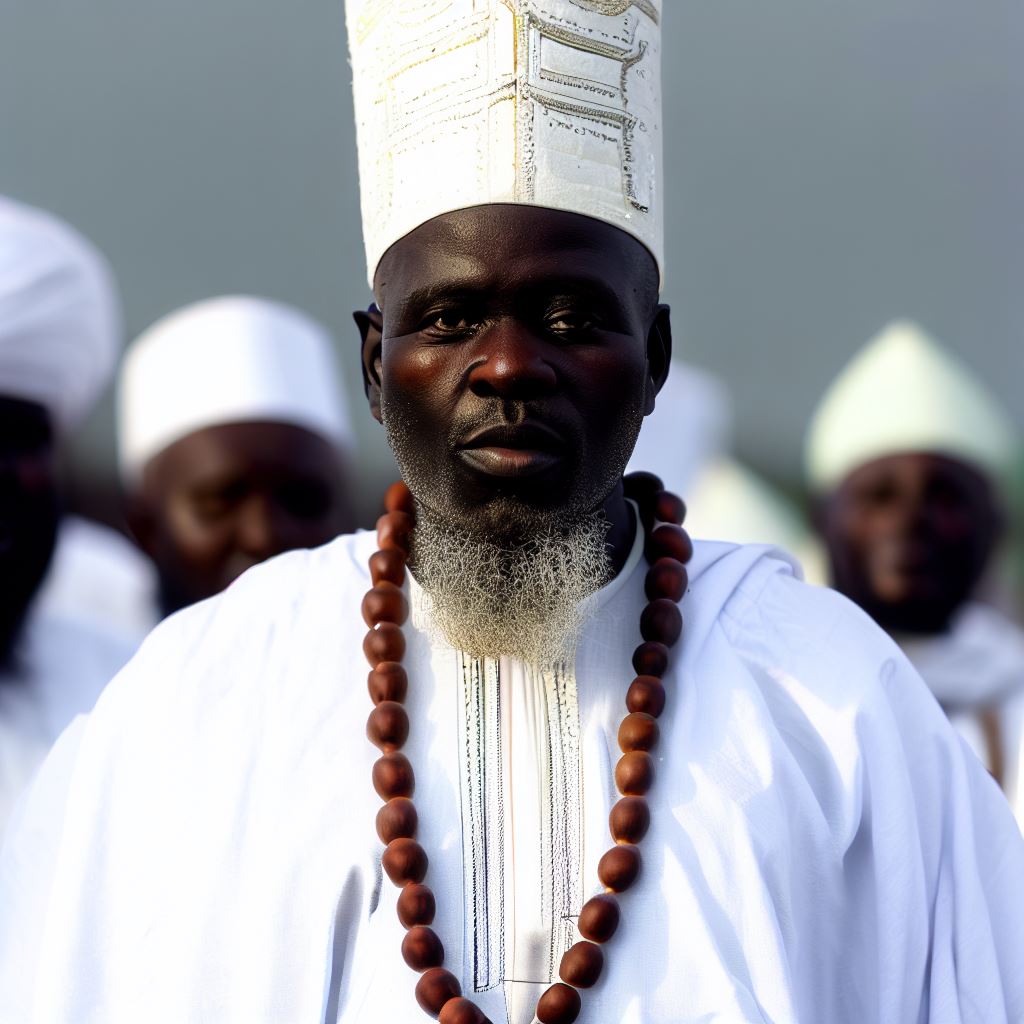
Case Studies of Nigerian Clergy Balancing Tradition and Modernity
Bishop Hassan’s innovative use of social media for outreach
- Bishop Hassan, a forward-thinking clergy member, utilizes social media platforms to reach a wider audience.
- Through engaging posts and live streams, he shares meaningful messages and promotes active religious participation.
- His online presence allows him to connect with young Nigerians who are more inclined towards modern technologies.
- By embracing social media, Bishop Hassan balances tradition and modernity to effectively spread his spiritual teachings.
- This innovative approach allows him to maintain relevance and foster a sense of community among his followers.
Reverend Okon’s incorporation of traditional music in contemporary worship
- Reverend Okon recognizes the importance of preserving Nigerian cultural heritage through worship practices.
- He skillfully blends traditional music elements with contemporary styles during religious ceremonies.
- By incorporating local instruments and melodies, he creates a unique and inclusive worship experience.
- Reverend Okon’s approach resonates with the congregation, harmoniously merging tradition and modernity in their worship.
- The integration of traditional music helps maintain cultural identity and bridge generational gaps within the church.
Imam Mohammed’s promotion of gender equality within Islamic teachings
- Imam Mohammed advocates for gender equality and challenges traditional gender roles within Islamic teachings.
- He emphasizes the importance of women’s education and empowerment, aligning with modern principles.
- Imam Mohammed conducts inclusive sermons that encourage women’s active participation in religious activities.
- Through his teachings, he strives to bridge the gap between tradition and modern values in the Muslim community.
- Imam Mohammed’s commitment to gender equality sets an example for other clergy members and promotes progressive change.
See Related Content: Challenges Faced by Nigeria’s Clergy: An Insightful Look
Overcoming Challenges and Finding Solutions
Identifying typical challenges faced by the clergy in balancing tradition and modernity
- Limited acceptance of modern practices in traditional communities.
- Resistance and skepticism from older members of the congregation.
- Conflicting expectations from different generations within the church.
- Potential loss of cultural identity while embracing modernity.
- Navigating the delicate balance between tradition and modern teachings.
Strategies for clergy members to navigate the complexities of balancing both aspects
- Educating themselves about both traditional and modern practices and beliefs.
- Incorporating relevant aspects of modernity without compromising on core religious values.
- Engaging with younger members to bridge the generational gap and understand their needs.
- Creating open and inclusive spaces for dialogue and understanding within the church.
- Providing guidance and counseling services to help members navigate conflicting beliefs.
The importance of open dialogue and collaboration within the clergy community
Effective communication and collaboration among clergy members are crucial in finding common ground between tradition and modernity.
Open dialogue allows clergy to learn from one another’s experiences and perspectives, enabling them to develop holistic approaches to Tradition and Modernity in Nigeria Clergy.
Collaborating on projects and initiatives that promote understanding can help foster a sense of unity among the clergy community.
Moreover, clergy members can support each other in addressing challenges and finding solutions.
By sharing their knowledge and experiences, they can develop innovative strategies to overcome obstacles and better serve their congregations.
In a rapidly changing society, clergy members must adapt to the evolving needs of their communities while honoring their traditions.
The challenges they face in striking this balance require continuous reflection, empathy, and willingness to listen and learn from others.
By embracing modernity while staying rooted in tradition, clergy members can provide guidance and inspiration to their congregations, leading them towards a harmonious integration of tradition and modernity.
Balancing both aspects is a dynamic process that requires ongoing efforts from the clergy, but the rewards are invaluable in nurturing a thriving and inclusive religious community.
Balancing Tradition and Modernity in Nigeria Clergy is an ongoing challenge, but not an insurmountable one.
By recognizing the typical challenges faced, adopting appropriate strategies, and fostering open dialogue among clergy members, the clergy community can navigate these complexities successfully.
It is through this navigation that the clergy can effectively adapt to the changing times while upholding their cultural and religious value system, ultimately serving as pillars of faith for their congregations.
Read: The Impact of Religion: Nigeria’s Clergy and Society
Conclusion
Recap of the significance of balancing tradition and modernity in Nigeria’s clergy
The ongoing effort to strike a balance between tradition and modernity in Nigeria’s clergy is of utmost importance.
It ensures that the religious institution remains relevant and responsive to the evolving needs of its congregation in this fast-paced world.
Encouragement for continued efforts to find an effective balance
We must continue to support and encourage the clergy’s quest for an effective balance between tradition and modernity.
This involves embracing innovative approaches while respecting and preserving the core values and traditions that have shaped Nigeria’s religious landscape.
Final thought or call-to-action to support a progressive and inclusive Nigerian clergy
As members of society, we have a role to play in fostering a progressive and inclusive Nigerian clergy.
We can support this by engaging in dialogue, encouraging acceptance of different viewpoints, and promoting open-mindedness towards the changes that come with modernity.
Together, we can build a clergy that caters to the spiritual and societal needs of all Nigerians Tradition and Modernity in Nigeria Clergy.

